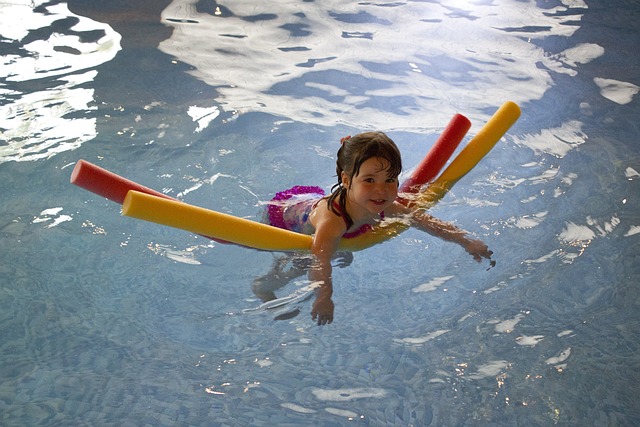Learning how to swim is a valuable life skill that can bring both joy and safety. In fact, there are many people out there who, regardless of age, have never learned how to swim. Be it due to fear of water or lack of opportunity, not knowing how to swim can limit one’s ability to fully enjoy activities such as beach vacations and pool parties.
But when exactly is the right time to learn how to swim? In this blog post, we will explore the different factors that may influence the best time for someone to start their swimming journey — read on!

Finding the Right Swimming Instructor
The right swimming instructor fosters a positive and effective learning experience. Find an instructor with the necessary certifications and experience, particularly with teaching different age groups and skill levels.
If you’re looking for classes for toddlers, the instructor needs to have a gentle approach and a fun, engaging method to keep young children interested and comfortable in the water. For adult learners, the instructor should have a patient and understanding approach to help overcome any existing fears or challenges.
Even consider the location of the swimming lessons. For young children, it’s recommended to start with classes in a controlled environment such as a community pool or indoor swimming facility. Adults can choose between these options or opt for more adventurous outdoor settings like lakes or oceans.
Benefits of Learning to Swim at a Young Age
As opposed to adults, children are typically less resistant to learning how to swim. Introducing them early on provides an excellent opportunity for their minds and bodies to adapt and develop essential swimming skills. This can also prevent any potential fear or anxiety towards water in the future.
Starting at a young age allows children to become confident swimmers before they venture into more open waters or participate in water-related activities like summer camps and beach trips. Learning swimming fundamentals at a young age can also lead to advanced skills as they grow older, such as competitive swimming or scuba diving.
Challenges Faced by Adult Learners
Although it’s never too late to learn how to swim, there are some challenges that adult learners may face. One of the main obstacles is overcoming any fear or discomfort towards water, and this can be due to a previous negative experience or simply not having been exposed to swimming at a young age.
Adults may also struggle with coordination and strength in the water compared to younger learners. Still, with a patient and supportive instructor, these challenges can be overcome, and swimming can become an enjoyable form of exercise and relaxation for adults as well. All you need to do is take the first step and sign up for lessons.
Overcoming Fear of Water
Fear of water, or aquaphobia, can significantly hinder your ability to learn how to swim. The key to overcoming this fear is to start slow and build confidence gradually. Begin by getting comfortable in the shallow end of a pool and slowly practicing basic skills such as floating on your stomach and back. With each small victory, you will gain more confidence and be able to progress further in your swimming journey.
Another helpful tip is to enroll in a group class instead of one-on-one lessons. Being surrounded by others who are also learning to swim can provide a sense of support and camaraderie. It can also be motivating to see others face their fears and make progress, which can inspire you to do the same.
Importance of Consistent Practice
Learning how to swim takes time and consistent practice. Just like any other skill, the more you practice, the better you become at it. You must attend all scheduled lessons and take the time to practice on your own in between classes.
Swimming is a full-body workout that requires muscle memory and coordination. When you practice regularly, your body will start to adapt and become more efficient in the water. Not to mention the added benefit of increased confidence and comfort in the water.
Swimming as a Lifelong Skill
Remember that learning how to swim is not just a one-time activity; it’s a lifelong skill that can bring joy and safety in various situations. Whether it’s swimming laps for exercise or participating in water sports, having the ability to swim confidently opens up many opportunities.
So when is the right time to learn how to swim? The answer is different for everyone, but the key is to start as early as possible with a qualified instructor and continue practicing consistently. With determination and dedication, anyone can learn how to swim at any age. So why wait?

As you may know by now, swimming is an essential life skill that offers numerous benefits, from enhancing physical health to ensuring safety around water.
By starting early and seeking the guidance of knowledgeable instructors, both children and adults can overcome any hurdles and learn to appreciate the water. Don’t let fear or age deter you — begin your journey with an open mind and a willingness to learn.
